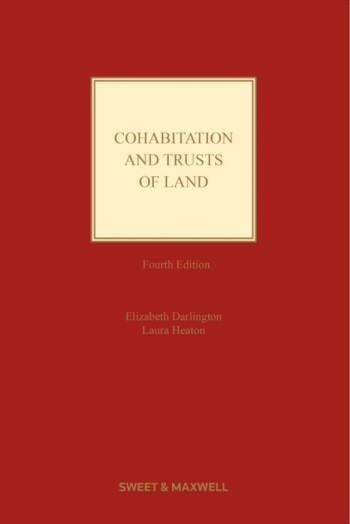
Taking into account important new case law decisions and developments in this expanding area of law, Cohabitation and Trusts of Land takes a practical approach in setting out the complex issues encountered in cohabitation disputes. Containing a detailed analysis of the substantive law, together with procedural guidance, precedents and sample documents, this work will enable you to quickly understand the options available. It helpfully covers both the relevant property law principles and family law (including Schedule 1 of the Children Act 1989) in detail, in one text.